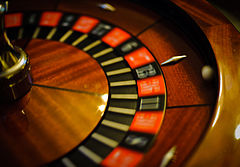 A lot of guff is talked about peer review – this is the process by which scientific articles are checked before they are published in the scientific literature. The article-to-be is sent by the editor of the scientific journal to the one or more scientists in the field who read it and decide whether it is: A) correct, and B) interesting.
A lot of guff is talked about peer review – this is the process by which scientific articles are checked before they are published in the scientific literature. The article-to-be is sent by the editor of the scientific journal to the one or more scientists in the field who read it and decide whether it is: A) correct, and B) interesting.
Peer review is genuinely crucial to science and to science’s application to our world. For example, trials of new potentially life-saving drugs must be peer-reviewed before they can be published in a form that scientists and medics find credible. Also, in fields which are politicised such as climate change then peer review is very important to create a body of knowledge that is (mostly) trustworthy and to keep out the crazy stuff from people who think that the data showing rising global temperatures is all a Marxist plot.
However, in practice, for a working scientist like me, it is often a pain in the arse. Essentially because it is a lottery. As a physicist if I have some bit of work I really like, I often want to send it to the journal Physical Review Letters. This is a general physics journal which is probably the mostly widely read of any physics journal. Usually you get two peer-review referee reports from two independent reviewers for this journal.
The standard of referee reports varies hugely, it is a lottery, sometimes a referee reads and understand it, sometimes they do not. Sometimes they see things from your perspective and agree on what is important and interesting, sometimes they see things from a different perspective (which may be perfectly valid) and disagree.
This time I got:
- One referee report which says it is great, and also makes a small but useful suggestion. This is good. I like this. 🙂
- One referee report by a referee who appears to have only skim-read the paper, and then written the report based on some pet peeves. They also suggested the article is not very new as it is similar to another paper from years ago (in the 1980s in fact). I had never read that paper so I panicked a bit, but then I read the paper and realised it is on a very different topic and is far far removed from my article-to-be. Sigh. This makes me irritable. 🙁
So, as usual I will write a polite reply pointing out that the other paper and my work are rather different, restate a few things etc, make a few minor tweaks and send the reply back. Then Physical Review Letters will probably eventually send it to a third referee to act as a tie breaker.
If I am lucky I will get a report of type 1) and so the article will be accepted and published. If I am unlucky it will be another one of type 2). Then I will have to send it to another journal. I will let you know how it goes.
